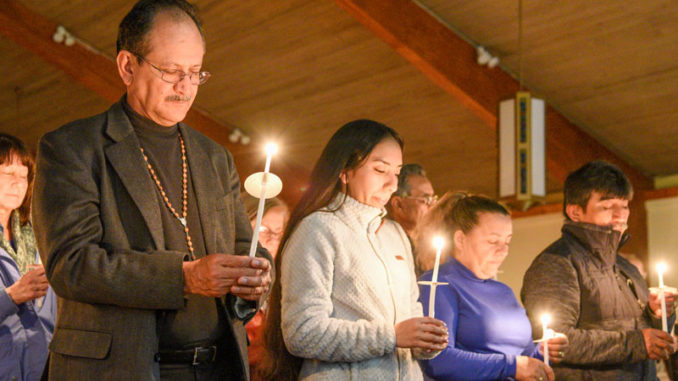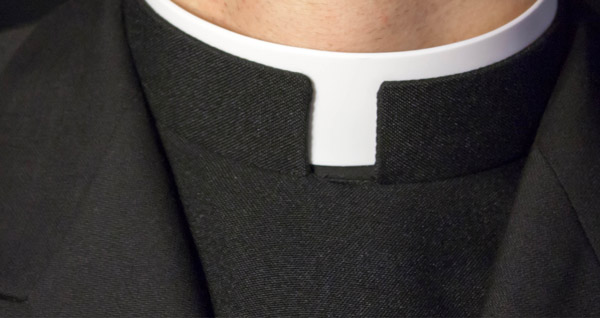
NORTH CHARLESTON—Brenda Escobedo was only 2 years old when she was brought to the United States with her family, who were seeking a better life and future for their children.
Now 22, she has grown up in America, attending school, going to church, and training for a career as a nurse/nutritionist.
Escobedo was one of more than 200 people who attended the candlelight vigil at St. Thomas the Apostle Church on Jan. 27 in support of Dreamers, children like Escobedo, who have been protected from deportation by the Deferred Action for Childhood Arrivals program.
The prayer vigil at St. Thomas is the second one held in the diocese to pray for these young immigrants, whose futures hang in the balance. The first was at Our Lady of the Hills Church in Columbia in November.
The vigils are in response to a case currently before the U.S. Supreme Court over the future of DACA, with a decision expected in June.

If DACA is ended, it will impact more than 700,000 undocumented young people, including almost 12,000 in South Carolina.
Advocates for allowing Dreamers to remain in the country are trying to draw attention to their plight.
The most recent event, at St. Thomas, included testimonies from young adults and worship hymns by the church’s Grupo Oracion members. Bishop Robert E. Guglielmone also spoke to the crowd and led them in praying the rosary.
“We are talking about people who were brought here as children,” Bishop Guglielmone said. “Most of them know no other home than the U.S. They are people who can offer a lot to this country because of their gifts and talents.”
DACA was established by President Barack Obama in 2012. It offers protections for undocumented immigrants under the age of 36 who do not have serious criminal records, saving them from deportation and allowing them to obtain work permits.
In 2017, President Donald Trump’s administration announced plans to end the program.
Since then, three federal courts have ruled against the administration, saying they must provide a fully supported rationale of the pros and cons of ending the program, plus costs and benefits. The administration has appealed the federal court decisions to the Supreme Court.
Deferred action has been in place for various groups for more than 30 years. With 11 million undocumented people in the U.S., it is a way to provide protection to groups who do not constitute a threat while the government focuses on more immediate deportations, such as “criminal aliens”.
Ending the program would lead to uncertain futures for DACA recipients, many of whom have families, own businesses, and work in a wide variety of fields.
The vigils were organized by the South Carolina Catholic Conference and the diocesan Office of Hispanic Ministry. Each drew hundreds of advocates.


